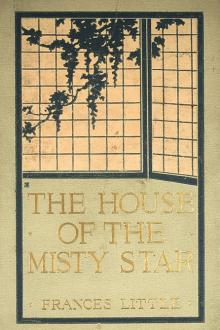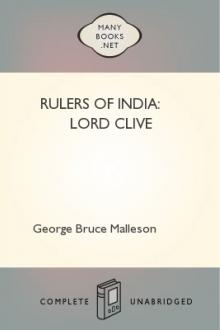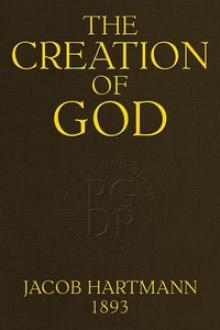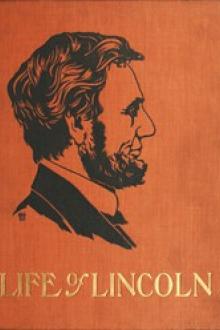
and Jane was like a kitten with a bell around its neck--one grows used to its playing about the house and misses it when gone. She also resembled a fixed star in her belief that she had been divinely appointed to carry a message of hope to the vilest of earth, and I felt that the same power had charged me with the responsibility of impressing her with a measure of commonsense.
So we compromised for a while at least. She would stay with me, and I would not interfere with her work in the crime section, nor give way to remarks on the subject.
I was sure the conditions in the Quarter would prove impossible, but as some people cannot be convinced unless permitted to draw their own diagram of failure, it was best for her to try when she was able to make the effort.
The making of an extra room in a Japanese house is only a matter of shifting a paper screen or so into a ready-made groove. It took me some time to decide whether I should screen off Jane in the corner that commanded a full view of

"I love God and every little child."
CHAPTER II.
THE CHILD'S TRIBUTE TO THE MOTHER.
A good mother is worth a hundred schoolmasters.--English Proverb.
The first poet, the first priest, was the first mother.The first empire was a woman and her children.--_O. T. Mason_.
When society, under the guidance of the "fathers of the church," wentalmost to destruction in the dark ages, it was the "mothers of thepeople" who saved it and set it going on the new right path.--Zmigrodski (adapted).
The story of civilization is the story of the mother.--Zmigrodski.
One mother is more venerable than a thousand fathers.--Laws of Manu.
If the world were put into one scale, and my mother into the other, theworld would kick the beam.--Lord Langdale.
Names of the Mother.
In A Song of Life,--a book in which the topic of sex is treatedwith such delicate skill,--occurs this sentence: "The motherho

ribute to the better understanding of the narrative of the events which plunged the English into war in 1745, if we take a bird's-eye view of the peninsula generally, particularly of the southern portion, as it appeared in the year preceding.
Of India generally it is sufficient to say that from the year 1707, when the Emperor Aurangzeb died, authority had been relaxing to an extent which was rapidly bringing about the disruption of the bonds that held society together. The invasion of Nadír Sháh followed by the sack of Delhi in 1739 had given the Mughal dynasty a blow from which it never rallied. Thenceforward until 1761, when the third battle of Pánípat completed the catastrophe, the anarchy was almost universal. Authority was to the strongest. The Sallustian motto, 'Alieni appetens sui profusus,' was the rule of almost every noble; the agriculturists had everywhere abundant reason to realize 'that the buffalo was to the man who held the bludgeon.'[1]
[Footnote 1: Th

Don't walk over that way."
"Yes, I shall. Mr. Rose seems to be coming this way, and I shall do the neighbourly thing and have a chat with him."
"Why, Father, you don't know him."
"That doesn't matter between next-door neighbours, at least between the men of the houses. Come along, and scrape acquaintance with the little girl. I think she looks pretty."
Dolly started, then a sudden fit of shyness seized her, and she stood stock-still.
"I can't," she murmured; "oh, Father, please don't ask me to!"
"All right, dear; don't if you don't want to. Run back to the house. I'm going to speak to Mr. Rose."
And that's how it happened that as the two men neared each other, with greeting smiles, the two girls, started simultaneously, and ran like frightened rabbits away from each other, and to their respective homes.
CHAPTER II
DOTTY ROSE AND DOLLY FAYRE
A few days passed without communication between the two

t of the Burning Pestle" (iii. 4): "There is a pretty tale of a witch that had the devil's mark about her, that had a giant to be her son, that was called Lob-lye-by-the-Fire." Grimm[17] mentions a spirit, named the "Good Lubber," to whom the bones of animals used to be offered at Manseld, in Germany. Once more, the phrase of "being in," or "getting into Lob's pound," is easy of explanation, presuming Lob to be a fairy epithet--the term being equivalent to Poake-ledden or Pixy-led.[18] In "Hudibras" this term is employed as a name for the stocks in which the knight puts Crowdero:
"Crowdero, whom in irons bound, Thou basely threw'st into Lob's pound."
[16] Mr. Dyce considers that Lob is descriptive of the contrast between Puck's square figure and the airy shapes of the other fairies.
[17] "Deutsche Mythologie," p. 492.
[18] See Keightley's "Fairy Mythology," pp. 318, 319.
It occurs, also, in Massinger's "Duke of Milan" (iii. 2), where it means "behind the arras:"

hunt for them, that the following pages are totreat. It is a subject more closely connected with the taste forcuriosities than with art, strictly so called. We are to beoccupied, not so much with literature as with books, not so muchwith criticism as with bibliography, the quaint duenna ofliterature, a study apparently dry, but not without its humours.And here an apology must be made for the frequent allusions andanecdotes derived from French writers. These are as unavoidable,almost, as the use of French terms of the sport in tennis and infencing. In bibliography, in the care for books AS books, theFrench are still the teachers of Europe, as they were in tennis andare in fencing. Thus, Richard de Bury, Chancellor of Edward III.,writes in his "Philobiblon:" "Oh God of Gods in Zion! what a rushingriver of joy gladdens my heart as often as I have a chance of goingto Paris! There the days seem always short; there are the goodlycollections on the delicate fragrant book-shelves." Since Dantew

ew of all the village might have been statues for the time, so motionless, so tense was each.
Not many actually heard the words of old Eph Adamson--words wrung out of the bitterness of his own soul perhaps, but words intolerable none the less. None had heard the words of Aurora Lane and the young man as they had spoken previous to this. None guessed who the stranger was or might be--none but drunken Eph Adamson. But all could see what now happened.
For one instant the young man stood almost like a statue. Then with one sudden thrust of his fist he smote the old man full in the mouth, so swift and hard a blow that Adamson dropped prostrate, and for the time motionless.
A sudden, instantaneous, electric buzz, a murmur, ran all around the square. A sound of shuffling feet and falling boxes might have been heard as men here and there rose eagerly, their necks craned out toward this swiftly made arena.
They saw the half-wit boy now advance upon Don Lane with a roar or bawl of rage, his

and Jane was like a kitten with a bell around its neck--one grows used to its playing about the house and misses it when gone. She also resembled a fixed star in her belief that she had been divinely appointed to carry a message of hope to the vilest of earth, and I felt that the same power had charged me with the responsibility of impressing her with a measure of commonsense.
So we compromised for a while at least. She would stay with me, and I would not interfere with her work in the crime section, nor give way to remarks on the subject.
I was sure the conditions in the Quarter would prove impossible, but as some people cannot be convinced unless permitted to draw their own diagram of failure, it was best for her to try when she was able to make the effort.
The making of an extra room in a Japanese house is only a matter of shifting a paper screen or so into a ready-made groove. It took me some time to decide whether I should screen off Jane in the corner that commanded a full view of

"I love God and every little child."
CHAPTER II.
THE CHILD'S TRIBUTE TO THE MOTHER.
A good mother is worth a hundred schoolmasters.--English Proverb.
The first poet, the first priest, was the first mother.The first empire was a woman and her children.--_O. T. Mason_.
When society, under the guidance of the "fathers of the church," wentalmost to destruction in the dark ages, it was the "mothers of thepeople" who saved it and set it going on the new right path.--Zmigrodski (adapted).
The story of civilization is the story of the mother.--Zmigrodski.
One mother is more venerable than a thousand fathers.--Laws of Manu.
If the world were put into one scale, and my mother into the other, theworld would kick the beam.--Lord Langdale.
Names of the Mother.
In A Song of Life,--a book in which the topic of sex is treatedwith such delicate skill,--occurs this sentence: "The motherho

ribute to the better understanding of the narrative of the events which plunged the English into war in 1745, if we take a bird's-eye view of the peninsula generally, particularly of the southern portion, as it appeared in the year preceding.
Of India generally it is sufficient to say that from the year 1707, when the Emperor Aurangzeb died, authority had been relaxing to an extent which was rapidly bringing about the disruption of the bonds that held society together. The invasion of Nadír Sháh followed by the sack of Delhi in 1739 had given the Mughal dynasty a blow from which it never rallied. Thenceforward until 1761, when the third battle of Pánípat completed the catastrophe, the anarchy was almost universal. Authority was to the strongest. The Sallustian motto, 'Alieni appetens sui profusus,' was the rule of almost every noble; the agriculturists had everywhere abundant reason to realize 'that the buffalo was to the man who held the bludgeon.'[1]
[Footnote 1: Th

Don't walk over that way."
"Yes, I shall. Mr. Rose seems to be coming this way, and I shall do the neighbourly thing and have a chat with him."
"Why, Father, you don't know him."
"That doesn't matter between next-door neighbours, at least between the men of the houses. Come along, and scrape acquaintance with the little girl. I think she looks pretty."
Dolly started, then a sudden fit of shyness seized her, and she stood stock-still.
"I can't," she murmured; "oh, Father, please don't ask me to!"
"All right, dear; don't if you don't want to. Run back to the house. I'm going to speak to Mr. Rose."
And that's how it happened that as the two men neared each other, with greeting smiles, the two girls, started simultaneously, and ran like frightened rabbits away from each other, and to their respective homes.
CHAPTER II
DOTTY ROSE AND DOLLY FAYRE
A few days passed without communication between the two

t of the Burning Pestle" (iii. 4): "There is a pretty tale of a witch that had the devil's mark about her, that had a giant to be her son, that was called Lob-lye-by-the-Fire." Grimm[17] mentions a spirit, named the "Good Lubber," to whom the bones of animals used to be offered at Manseld, in Germany. Once more, the phrase of "being in," or "getting into Lob's pound," is easy of explanation, presuming Lob to be a fairy epithet--the term being equivalent to Poake-ledden or Pixy-led.[18] In "Hudibras" this term is employed as a name for the stocks in which the knight puts Crowdero:
"Crowdero, whom in irons bound, Thou basely threw'st into Lob's pound."
[16] Mr. Dyce considers that Lob is descriptive of the contrast between Puck's square figure and the airy shapes of the other fairies.
[17] "Deutsche Mythologie," p. 492.
[18] See Keightley's "Fairy Mythology," pp. 318, 319.
It occurs, also, in Massinger's "Duke of Milan" (iii. 2), where it means "behind the arras:"

hunt for them, that the following pages are totreat. It is a subject more closely connected with the taste forcuriosities than with art, strictly so called. We are to beoccupied, not so much with literature as with books, not so muchwith criticism as with bibliography, the quaint duenna ofliterature, a study apparently dry, but not without its humours.And here an apology must be made for the frequent allusions andanecdotes derived from French writers. These are as unavoidable,almost, as the use of French terms of the sport in tennis and infencing. In bibliography, in the care for books AS books, theFrench are still the teachers of Europe, as they were in tennis andare in fencing. Thus, Richard de Bury, Chancellor of Edward III.,writes in his "Philobiblon:" "Oh God of Gods in Zion! what a rushingriver of joy gladdens my heart as often as I have a chance of goingto Paris! There the days seem always short; there are the goodlycollections on the delicate fragrant book-shelves." Since Dantew

ew of all the village might have been statues for the time, so motionless, so tense was each.
Not many actually heard the words of old Eph Adamson--words wrung out of the bitterness of his own soul perhaps, but words intolerable none the less. None had heard the words of Aurora Lane and the young man as they had spoken previous to this. None guessed who the stranger was or might be--none but drunken Eph Adamson. But all could see what now happened.
For one instant the young man stood almost like a statue. Then with one sudden thrust of his fist he smote the old man full in the mouth, so swift and hard a blow that Adamson dropped prostrate, and for the time motionless.
A sudden, instantaneous, electric buzz, a murmur, ran all around the square. A sound of shuffling feet and falling boxes might have been heard as men here and there rose eagerly, their necks craned out toward this swiftly made arena.
They saw the half-wit boy now advance upon Don Lane with a roar or bawl of rage, his


